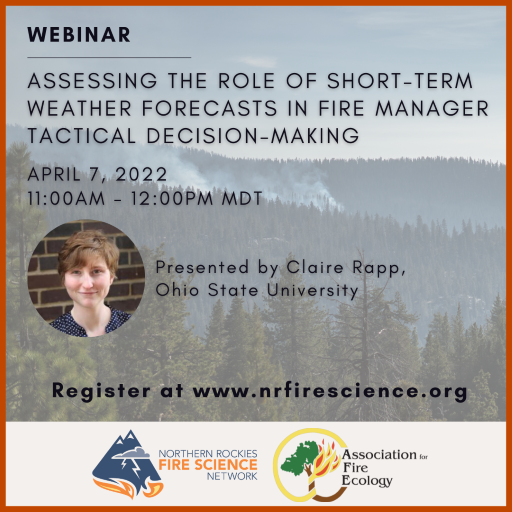Presented by: Claire Rapp, Ohio State University
This webinar was hosted in partnership with the Association for Fire Ecology, and was paired with an episode of their podcast, Fire Ecology Chats. We encourage you to listen to the podcast episode before or after the webinar recording. The publication in the Fire Ecology Journal related to this presentation can be found below.
Weather plays an integral role in fire management due to the direct and indirect effects it has on fire behavior. However, fire managers may not use all information available to them during the decision-making process, instead utilizing simplifying decision rules called heuristics, i.e. mental "shortcuts." These shortcuts can be adaptive and enable fast and efficient decision-making, or they can introduce systematic bias.
This talk explored how decision strategies influence how fire managers interpret and use short-term weather forecasts. The results have implications for the design of decision support tools developed to support fire management. Using a choice experiment of USDA Forest Service fire managers, key weather attributes were varied to explore how sensitive fire managers were to changes in specific weather variables when choosing to directly or indirectly attack a fire that is transitioning to extended attack. The influence of weather information on the decision depended on the framing used in the choice experiment; specifically whether respondents were told the initial strategy had been to directly or indirectly attack the fire. If fire weather-based decision support tools are to support the use of the best available information to make fire management decisions, careful attention may be needed to present information in a way that supports adaptive decision-making. Possible strategies to debias are discussed.
Related Documents from the Research and Publications Database
Recording(s)
Event Details
Apr 7 2022, 11am
